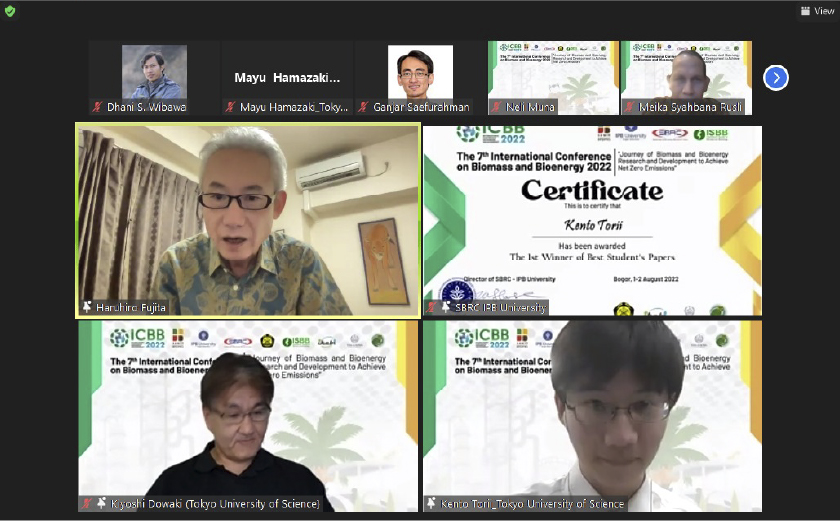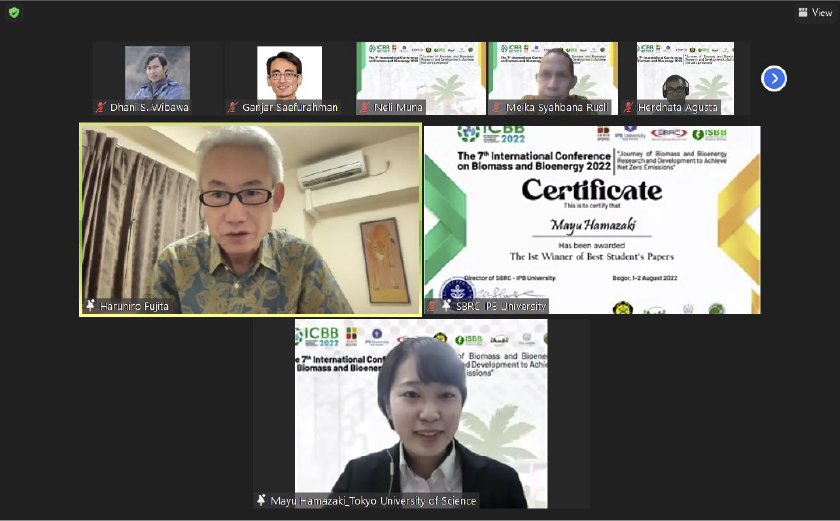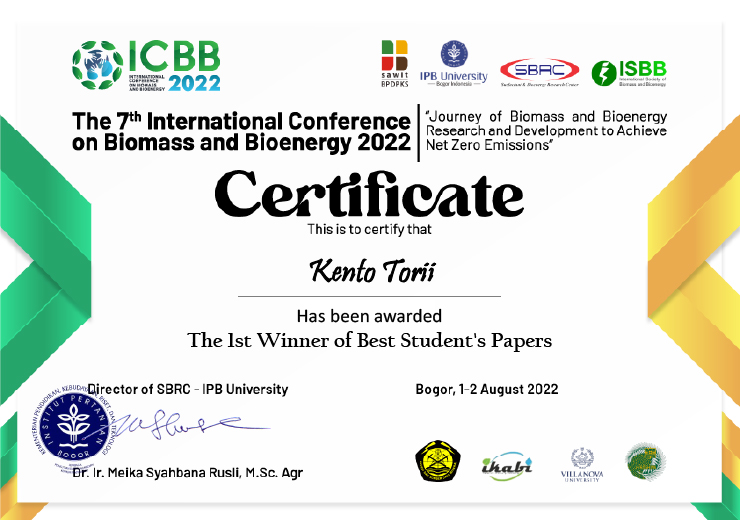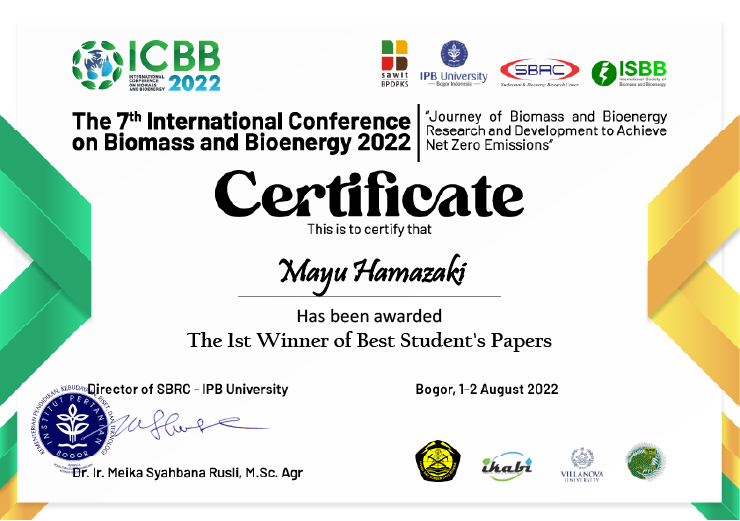August 2, 2022
Congratulations of the “Best Student's Paper Awards (1st. Winner)”
In the international conference of “International Conference on Biomass and Bioenergy (2022) which was held on from 1 to 2 August 2022, our research team including master’s course and undergraduate students won the best students’ paper awards.
Congratulations!!
Congratulations!!
#1
Winners
2nd master course student: Mr. Kento Torii
2nd master course student: Mr. Kento Torii
Supervisors
Prof. Kiyoshi Dowaki (Dept, of Industrial Administration)
Prof. Kiyoshi Dowaki (Dept, of Industrial Administration)
Co-authors
Dr. Shoichi Kumon, Mr. Kimitaka Sato, Mr. Shogo Kato (Dowa Holdings Co. Ltd., Japan)
Dr. Shoichi Kumon, Mr. Kimitaka Sato, Mr. Shogo Kato (Dowa Holdings Co. Ltd., Japan)
Research Title
Dynamic LCA of H2S Adsorption from Bio-syngas Using Mine Residue
Dynamic LCA of H2S Adsorption from Bio-syngas Using Mine Residue
Contents
Hydrogen sulfide (H2S) in gasified biomass (bio-syngas) is known to reduce the efficiency of fuel cells. To maintain high efficiency, H2S is removed by impurity adsorption. In this study, we proposed the removal system using a waste product from a mine, neutralized sediment, as an adsorbent to reduce the environmental impact of an impurity adsorption system in a hydrogen production plant from sewage sludge. The eco-burdens in consideration of LCA were discussed.
The winner has participated in the cross-disciplinary course in our faculty of science and technology.
Hydrogen sulfide (H2S) in gasified biomass (bio-syngas) is known to reduce the efficiency of fuel cells. To maintain high efficiency, H2S is removed by impurity adsorption. In this study, we proposed the removal system using a waste product from a mine, neutralized sediment, as an adsorbent to reduce the environmental impact of an impurity adsorption system in a hydrogen production plant from sewage sludge. The eco-burdens in consideration of LCA were discussed.
The winner has participated in the cross-disciplinary course in our faculty of science and technology.
Date
August 2, 2022
August 2, 2022
#2
Winners
3rd undergraduate student: Ms. Mayu Hamazaki
3rd undergraduate student: Ms. Mayu Hamazaki
Supervisors
Prof. Kiyoshi Dowaki (Dept, of Industrial Administration)
Dr. Shan Miao
Prof. Kiyoshi Dowaki (Dept, of Industrial Administration)
Dr. Shan Miao
Co-authors
Dr. Mitsuo Kameyama, Dr. Jericho Victor L Mercado (Japan Blue Energy Co., Ltd., Japan)
Dr. Mitsuo Kameyama, Dr. Jericho Victor L Mercado (Japan Blue Energy Co., Ltd., Japan)
Research Title
Discussions on the heat transfer performance of the indirect pyrolysis plant using CFD modeling
Discussions on the heat transfer performance of the indirect pyrolysis plant using CFD modeling
Contents
Pyrolysis is one of the hydrogen production pathways from sewage sludge. The critical problem in our indirect pyrolysis process is the less heat transfer performance in the furnace. The circulation of heat media controls heat transfer in the pyrolizer (e.g., heat carriers (HCs) in the form of alumina balls), which are essential in determining heat transfer performance, and ultimately determining the hydrogen yield. This study investigated the relationship between the operating conditions and the HC temperature profile to determine the optimum conditions for sufficient heating of the HCs. We discussed the HCs’ performance aspects to achieve a more effective operation using low inputs. Using Computational Fluid Dynamics (CFD) simulation, we assessed the effect of the inlet gas temperature, inlet gas flow rate, and furnace structure on the heat transfer performance.
The winner has joined the undergraduate and master’s integrated courses in our faculty of science and technology.
Pyrolysis is one of the hydrogen production pathways from sewage sludge. The critical problem in our indirect pyrolysis process is the less heat transfer performance in the furnace. The circulation of heat media controls heat transfer in the pyrolizer (e.g., heat carriers (HCs) in the form of alumina balls), which are essential in determining heat transfer performance, and ultimately determining the hydrogen yield. This study investigated the relationship between the operating conditions and the HC temperature profile to determine the optimum conditions for sufficient heating of the HCs. We discussed the HCs’ performance aspects to achieve a more effective operation using low inputs. Using Computational Fluid Dynamics (CFD) simulation, we assessed the effect of the inlet gas temperature, inlet gas flow rate, and furnace structure on the heat transfer performance.
The winner has joined the undergraduate and master’s integrated courses in our faculty of science and technology.
Date
August 2, 2022
August 2, 2022





